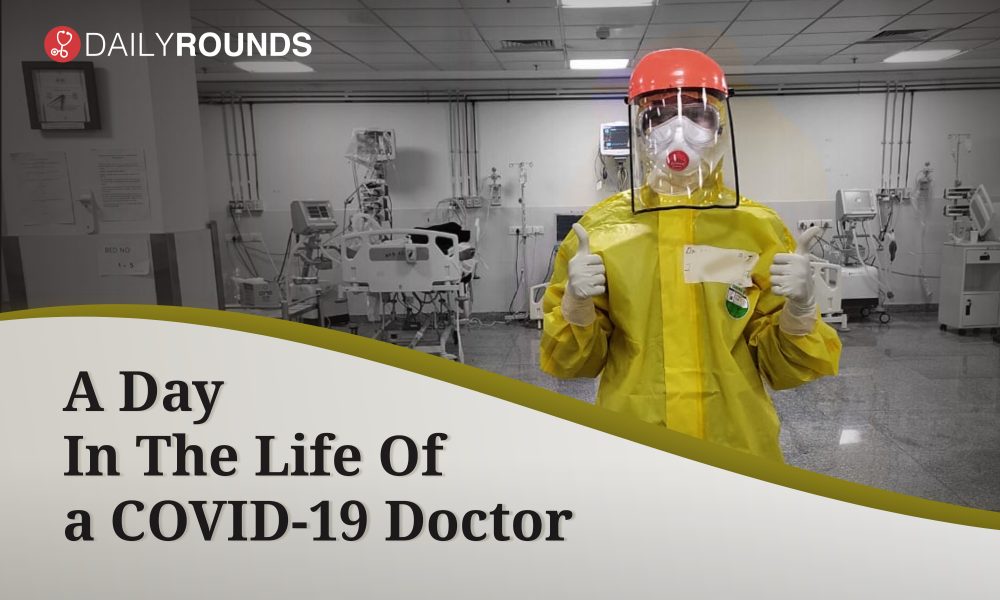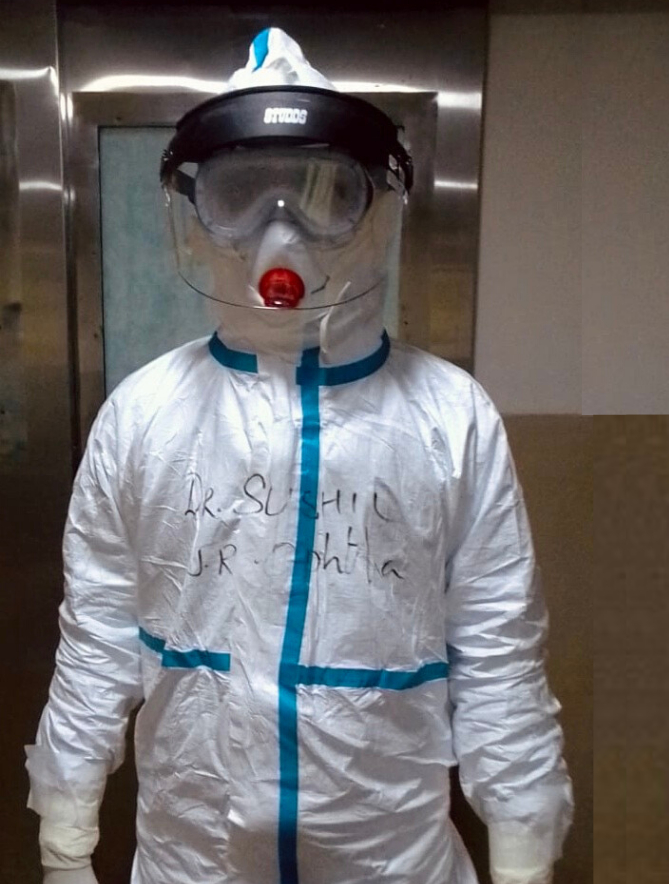
A Day In The Life Of a COVID-19 Doctor
At times, a day of mine starts at 9 PM! Yes, you heard it right. As the pandemic split our working period into six continuous hours, a day of mine can either start at 3 o’clock in the morning or as late as 9 PM in the dead of night.
Either way, when the alarm wakes me up I can feel the torment on my entire body. Irregular sleeping hours and sleep deprivation are now a constant companion. However, I’ll kick start the exhausted body and will be back to work without a second thought. All thanks to my circadian rhythm that has been doing a restless job for the past one month!
After getting ready, when I look at the mirror, it reflects a face that looks odd with discoloration and a scraped nose. The N95 mask has left several patches on my face. I rush to the hospital as the duty time approaches. I wore my scrubs and put on the PPE, placed a piece of cotton over my forehead, bridge of the nose and ears to help pad my ever-increasing pressure burn, and put the mask over it. The armour is all set and now it’s time for yet another battle. A battle of six hours, with no breathing space and no respite in between.
Soon after entering the polythene suit of armour, I started ‘feeling the heat’. It’s literally very hot inside and there’s no way out of it until the minute hand completes six rotations. Neither can I have a glass of water nor can I go to the lavatory in between. However, we resolve the latter issue with the help of adult diapers!

Primarily I’m an ophthalmology resident. Wondering what an eye specialist has to do with COVID-19? Well, I can throw some light on this. As we know, the surging number of COVID-19 cases has resulted in a drastic shortage of manpower in the healthcare sector. It is apparent that hospitals are running out of specialist doctors. So, to avoid overburdening of specialists, doctors from different departments are entrusted to do their part in treating the COVID-19 patients. I take blood samples for routine investigations and ABG analysis, insert Ryle’s tube and Foley’s catheter, and also assist in other procedures being done by specialists. We are also entrusted with the responsibility of meticulously maintaining digital records and files of the patients. Much of what I learned, during my MBBS days and as a resident, has helped me assume my role in the Intensive Care Unit.
Within half-an-hour of duty, I’m drowned in sweat and the scrub gets soaked. I have to bear this heavy scrub for the rest of my duty hours. The goggles started fogging up and the vision started to blur. I could hardly see people and objects in the immediate vicinity. Everything in front would look like a low-quality YouTube video, however, there’s no option to increase the picture quality as we know that removing the goggles, even for clearing the fog, is not the safest of practices.
In the initial days, most of us were experiencing severe headaches and dizziness during duty times. These ailments can be attributed to the overwhelming physical and emotional stress. There was no scope for us to even take a pill as it would also require us to uncover the protective shield.
Each patient presents unique challenges, though they all share the diagnosis of SARS-CoV-2. The number of cases is surging day by day so is the number of patients in the hospital wards. There’s a huge burden of responsibility on our shoulders, and at times we can feel it. But one thing is for sure, In the midst of the pandemic, our deeds can change the course of history.
At 3 o’clock in the morning, the next team arrives, which means my job is done for the day. Typically night shifts in an ICU are quiet and controlled, with some exceptions, but not in these units. Weekdays, weekends, nights and days are completely irrelevant; it is as if time has stopped since the arrival of the virus.
Even amidst all this, doctors are committed to doing their duty in the best possible way. I have always felt that in their efforts to safeguard the patients they often forget about their personal well-being. Even in these toughest of conditions I can find many doctors in and around, who are risking their lives for the safety of others. Although, what they get in return for all this is still a matter of concern.
The narrator is Dr. Sushil Kumar, an ophthalmology resident at All India Institute of Medical Sciences (AIIMS) Delhi. The views and opinions expressed in this article are those of the author and do not necessarily reflect the official policy or position of the institution.
Follow and connect with us on Twitter | Facebook | Instagram